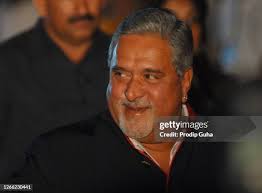
Introduction
Vijay Mallya, the former chairman of United Breweries Group and a prominent figure in Indian business, has garnered significant media attention over the past few years. Once celebrated for his entrepreneurial ventures and known for his lavish lifestyle, Mallya’s reputation has been tarnished due to legal troubles and charges of financial misconduct. This article explores the recent developments concerning Mallya and the ongoing implications of his legal challenges.
The Rise and Fall of Vijay Mallya
Mallya’s trajectory began as a promising entrepreneur who successfully built the Kingfisher brand and expanded his business interests into industries, including aviation and sports. However, in 2016, allegations of loan defaults amounting to more than ₹9,000 crores (approximately $1.3 billion CAD) surfaced, leading to his fall from grace. The Indian government labeled him a ‘fugitive economic offender’ and initiated procedures to extradite him from the United Kingdom, where he had taken refuge.
Recent Developments
As of October 2023, Mallya’s legal battles continue to unfold in the UK courts, with hearings focusing on his extradition. After his initial extradition request was approved in 2018, judicial complications plagued the process, with Mallya’s defense team employing various arguments to delay proceedings. Most recently, the Westminster Magistrates’ Court upheld the earlier decision, stating that Mallya had several avenues to explore before a final ruling on extradition could occur.
On the Indian front, the enforcement directorate (ED) and the Central Bureau of Investigation (CBI) are actively pursuing the recovery of assets linked to Mallya. They have secured the attachment of numerous properties, including high-end real estate in India and abroad, aggregating over ₹9,000 crores as part of the legal proceedings against him.
Conclusion
Vijay Mallya’s situation highlights critical issues regarding financial accountability and legal frameworks in India and the international sphere. As the courts continue to navigate complex legal challenges, the outcome of Mallya’s extradition may set a significant precedent for similar cases. With various investigations still in progress and his financial assets in limbo, the developments surrounding Mallya remain relevant not just for legal observers but also for ordinary citizens who follow stories of corporate governance and fiscal responsibility.
As the legal landscape evolves, readers are left to ponder the broader implications of Mallya’s saga on international banking practices and the potential effects on India’s image in the global business community.






